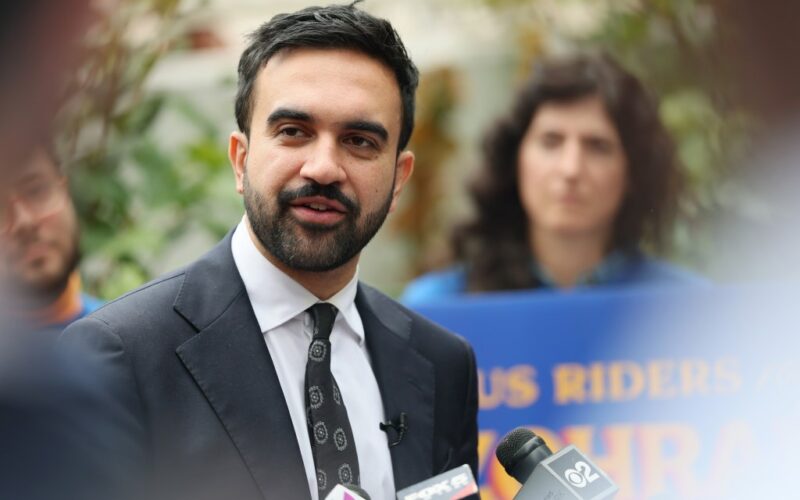In recent years, we’ve watched powerful men like Sean “P. Diddy” Combs and Jeffrey Epstein exposed for sexually exploiting women and girls. These cases show how easily money and power can be weaponized to prey on the vulnerable. Yet despite all we have learned, mayoral candidate Zohran Mamdani still supports the full decriminalization of prostitution.
Decriminalization doesn’t just mean decriminalizing people being sold for sex — it means removing all criminal penalties for pimping, brothel-owning, and buying sex. In other words, it would open the door to making sexual exploitation a booming business in one of the most visited cities in the world.
Let’s first acknowledge where Mamdani is right: we should not be arresting the people being bought and sold. At World Without Exploitation, the nation’s largest anti-trafficking coalition, we work with survivors — women, girls, LGBTQ youth, and people of color — who’ve endured abuse, rape, and trauma at the hands of buyers and traffickers. Survivors need support, services, and exit strategies, not handcuffs.
But Mamdani is dangerously wrong about the solution. As a New York State assemblyman, he is cosponsoring legislation that would fully decriminalize the sex trade, including pimping and sex buying. This isn’t a progressive policy — it’s a gift to traffickers and exploiters.
We don’t need to guess what would result, as some countries have already tried this wrongheaded approach. Whether it’s full decriminalization (as in New Zealand) or legalization (as in Germany, the Netherlands, and some counties in Nevada), the outcomes are strikingly similar: an expanded sex trade, more trafficking, and more violence.
Under both models, all aspects of prostitution become legal — including the buying, selling, and promotion of sexual acts. Brothels become businesses. Pimps become “managers.” Law enforcement loses the tools to investigate and prosecute trafficking. Demand increases, and with it, so does coercion.
In places where the sex trade is legal or decriminalized, the illegal trade doesn’t disappear. In fact, it grows — because the legal market normalizes and increases demand, and there are never enough “willing” sellers to meet it. Traffickers step in to fill the gap.
Even worse, it becomes nearly impossible to obtain search warrants or arrest exploiters. That’s not justice — it’s abandonment. And it hurts the most vulnerable among us.
While proponents like Mamdani and the Democratic Socialists of America (DSA) use the term “decriminalization” to sound compassionate, make no mistake: what they’re proposing is more extreme than legalization. Full decriminalization eliminates all penalties for sex buyers, pimps, and brothel owners. And it does so without any regulations in place; not even a façade of protection for those in the sex trade.
The legislation Mandami supports also makes it harder to investigate and prosecute cases of sex trafficking because commercial sex establishments would become legitimate businesses, thus eliminating law enforcement’s opportunities to detect children and trafficking victims. Bluntly, it would make it easier for sex buyers to get away with purchasing sexual acts from a minor.
Many individuals caught in the sex trade are no longer legally children. But, they’re still young — often just out of foster care, escaping homelessness, or fleeing abuse. They’re disproportionately young women of color and LGBTQ youth.
In a world where sex buying is legal, these vulnerable populations are funneled into a system that treats their bodies as commodities — all to satisfy the demand of men who face no risk for buying them. For years, youth shelters in New York City have reported pimps recruiting young people into the sex trade.
This is not a victimless industry. The sex trade is inherently violent, and it thrives on inequality. Turning the Big Apple into a sex tourism hotspot isn’t progress. It’s exploitation dressed up as liberation.
Thankfully, there’s a better path for New York. The Sex Trade Survivors Justice and Equality Act would decriminalize only those being exploited, offering them exit services and support. This legislation is modeled on successful laws in countries such as Sweden, France and Canada. They target exploiters, not the exploited and recognize that those in the sex trade deserve dignity, care, and a way out — not laws that license their abuse.
Let’s not be fooled by catchy slogans. Full decriminalization isn’t about safety or freedom. It’s about profit, pure and simple. Profit for those who exploit. New York can, and must, choose a better path that protects all our families, our communities and society’s most vulnerable.
Zipkin is the policy director at World Without Exploitation and a former NYC prosecutor.








